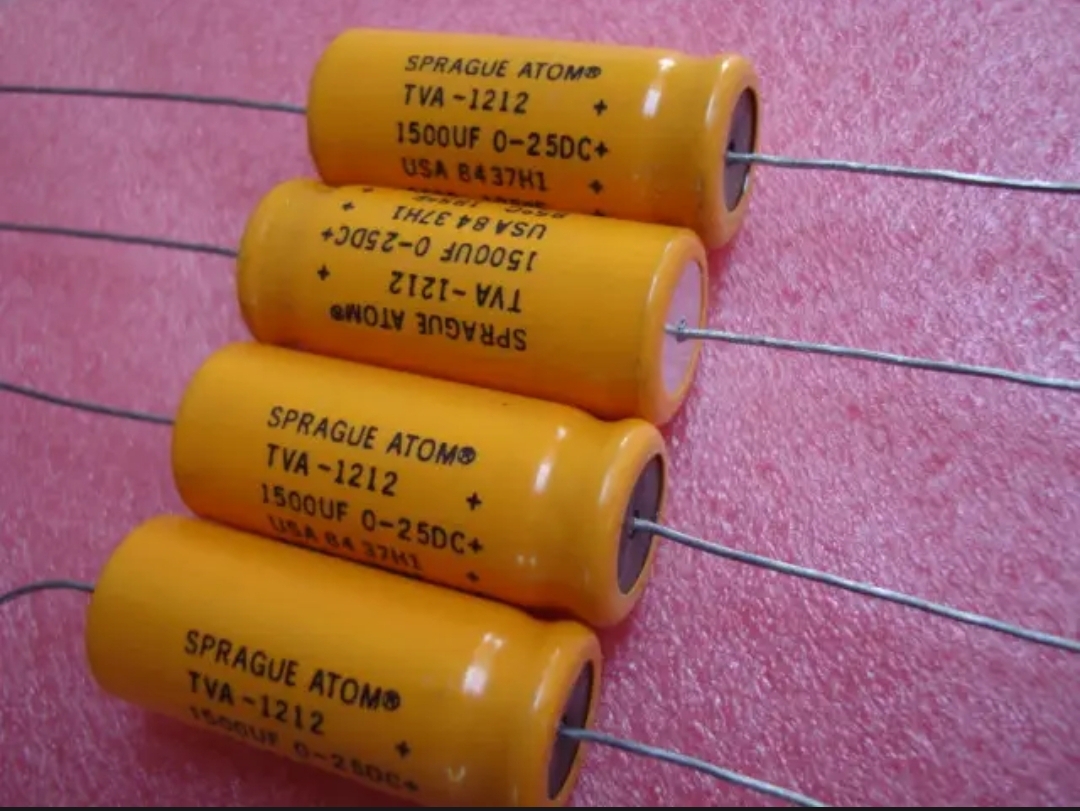Can anyone tell me what the minimum values of large blue capacitors can be used in an Apple-1 replica without resorting to dirty tricks like the direct feed method?
I have a set of 3500 uf blue capacitors and a pair of 2000 uf each, received quite a while ago from someone I have no reason to distrust. From what he says it will work.
I also looked at the photo of the Apple Computer A Michael Newton replica, the bottom capacitors there have a 2000 uf capacitance each.
I'm still looking for some parts for my NTI and Computer A replicas. I found a couple options, the top one is 4000 uf 16V, I think it will fit for sure. It's a little smaller in physical dimensions, 22x54 mm.
And the bottom one, 1500 uf 25V. Also smaller, 16x38 mm. I have my doubts about the latter....
I realize it's not what it should be, not "fat bastards". I'd say "almost fat bastards" like what I'm using on my replica now, but in over a year of searching I've only found these. But they are labeled MADE IN USA, which overrides these shortcomings. What do you think?




What is their capacitance today?
I don't know, I haven't bought them yet. This photo is from the lot description.
Don't put in anything significantly larger than was originally used unless you know what you are doing.
According to lab experiments I did some years ago, the capacitances of the "big blue" Sprague filter capacitors can be reduced dramatically. Actually, they are oversized (too much capacitance) which greatly stresses the rectifier diodes during power-on. Typical transformers can source several times of their rated current (for a short while) and high capacitance filter capacitors can demand high charging currents, which is no good. This is the reason why more powerful power supplies always employ some sort of soft-start circuit which limits the power up inrush current. The point here is that substituting the rectifier diodes against other types in the Apple-1 is more fraught with pitfalls than substituting the filter capacitors against smaller ones.
I think I posted something about minimum filter capacitor sizes here in the Apple-1 forum years ago. But I don't remember what the values were. At least not with high confidence. I seem to remember that on the +/-12V section the filter capacitors can be reduced to 470 uF each, when using the same transformer output voltages. The filter capacitor on the +5V section can be reduced, too, but NEVER increase it, you may blow up the rectifier diodes.
I have some Apple-1 builds which use 1000uF/25Vdc on the +/-12V section and 3800uF/15Vdc on the +8V section, and they work fine both with transformers and with modified switchmode power supplies. This variation was driven by Y1976 date codes on the 3800uF one ... sneaky. They were reformed, and tested to be good, though.
In my "Tips & Tricks" pdf for Apple-1 builders there is a discussion on how to size filter capacitors and how to experimentally find the minimum capacitance needed to ensure proper headroom for the regulator given a specific transformer output voltage. Send me a PM if you want a free copy.
- Uncle Bernie
Thanks for the detailed reply!
After some thought, I've given up on this idea. I'm not ready to compromise yet, I'll see if there are other options closer to the original part.